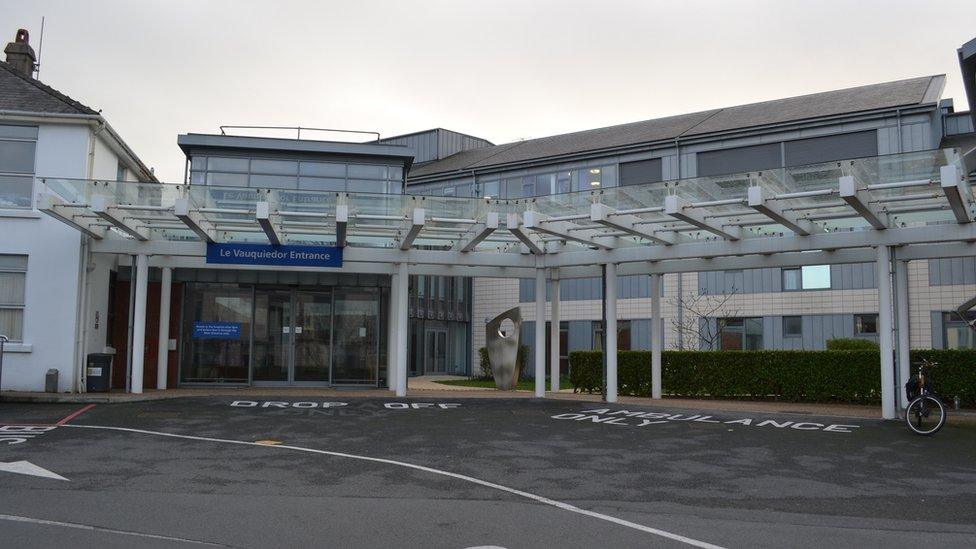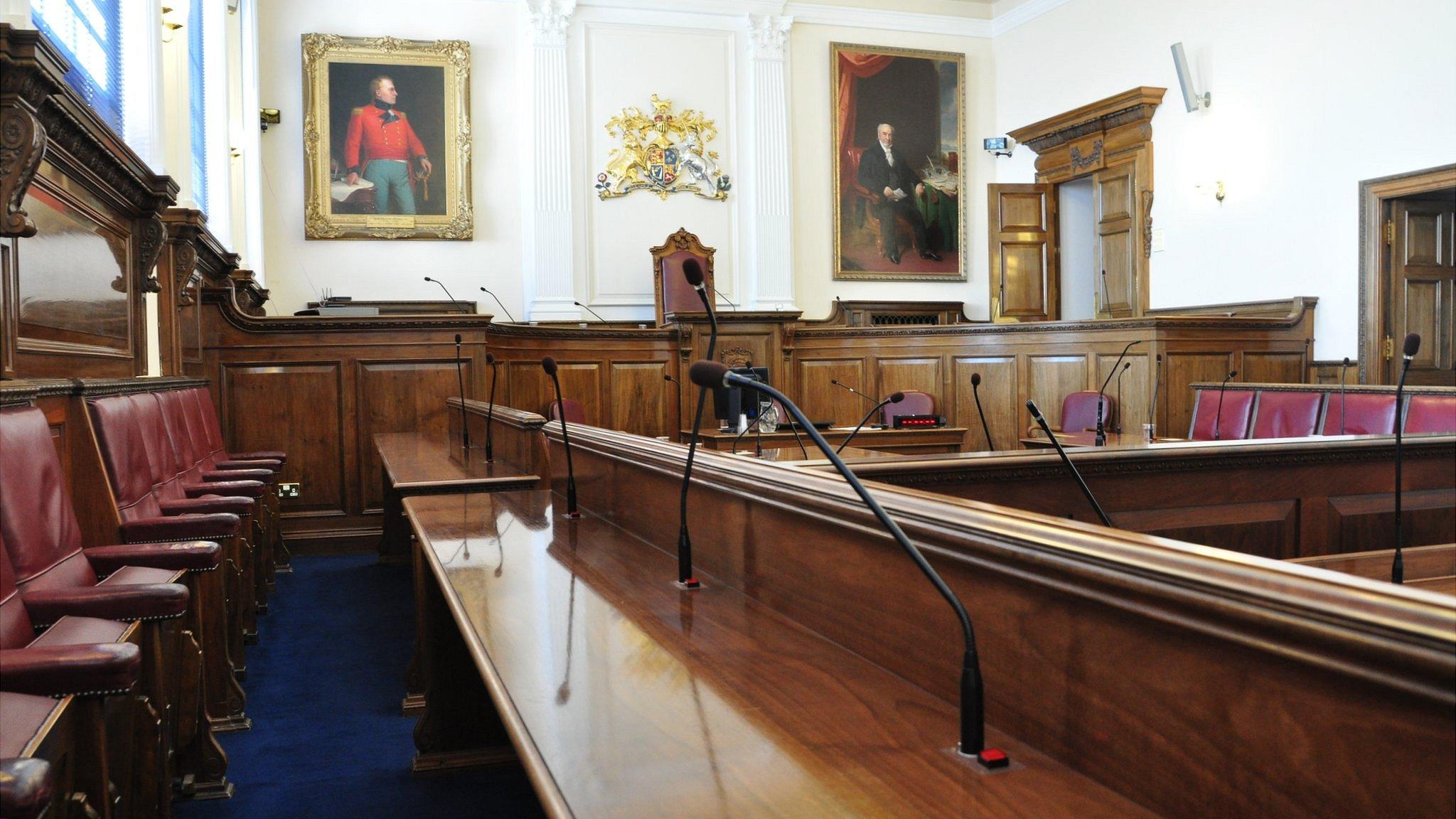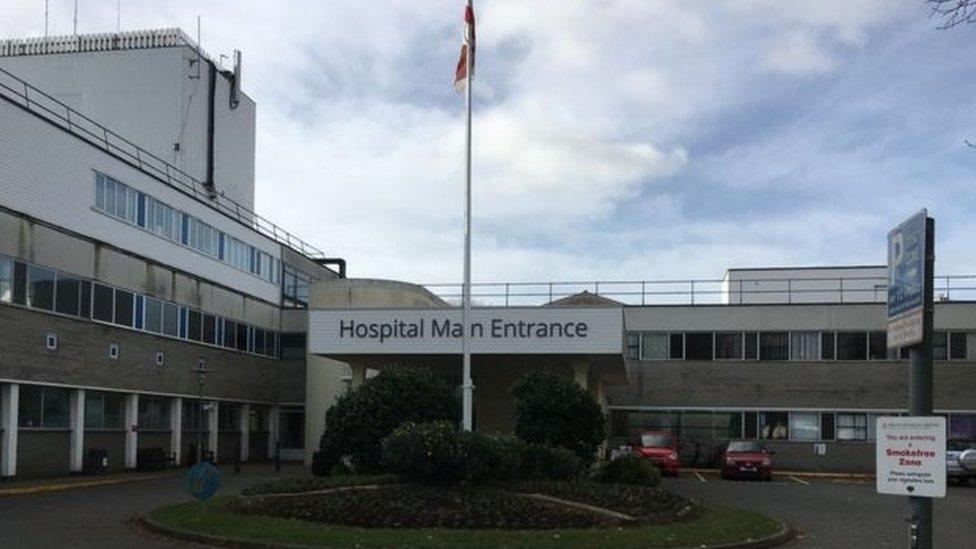Guernsey tax review looks at raising £132m for public services
- Published

Health bosses have called for extra funding to meet projected increases in demand
An 8% goods and services tax or a 7% rise in personal tax would raise the extra £132m needed to fund Guernsey's public services, a report says.
The 2020 Budget made it clear the island's "comparatively small and narrow tax base" could not support the increasing demand for services.
The Fiscal Policy Review sets out the principles for changes to raise the £79m-£132m needed in next 5-10 years.
It suggests a combination of measures may be the best way forward.
These include increasing property taxes, social security contributions, corporate tax, introducing a health tax and changing the threshold for the higher earners rate.
The projected increase in the demand for public services is driven by the island's ageing population and specific projects.
These include funding more drugs and treatments, the public pension schemes and the public sector terms and conditions review, the last of which could see States staff costs rise by up to £40m.
"The simple fact is the more services we wish to provide, the more it will cost," said Deputy Gavin St Pier, President of the Policy and Resources Committee which carried out the review.
The committee's review suggests the government revenue ceiling - how much can be raised in taxes and charges - remains at 24% of Gross Domestic Product (GDP), which is the total value of goods and services produced by the island in a year.
If the review is approved the committee will be tasked with bringing forward proposals for the actual changes by June 2021, including the financial, economic and social impact they would cause.
- Published25 November 2019

- Published5 November 2019

- Published8 October 2019
